Tottenham chairman Daniel Levy's decision to cut the wages of 550 non-playing staff has been roundly criticised - Joe Townsend looks at why there could be more to it.
What are people angry about?
Given the current climate, it's understandable to jump to the conclusion that football is pure evil when Tottenham chairman Daniel Levy announces a 20 percent pay cut for 550 non-playing staff, use of the government's furlough scheme, and nothing about reduction in player wages.
Newcastle and Norwich, by the way, have also announced that they are planning to use the Coronavirus Job Retention Scheme, whereby the state pays 80% of salary up to a monthly limit of £2,500.
Those clubs' actions have started a debate about whether top-flight clubs earning hundreds of millions of pounds in TV revenue are the kind of firms that the government was intending to help when it set up its unprecedented bail-out package. That is perhaps for another day.
But Spurs' announcement drew a vitriolic reaction in comparison to Norwich and Newcastle, for good reason.
Just a few short hours after Levy's statement, the club's annual accounts were released, showing that he had been awarded a £3m bonus for the completion of Tottenham's new stadium, on top of the £4m salary which already makes him the Premier League's highest paid executive.

Unlike Newcastle and Norwich, Spurs are a footballing behemoth - they ranked as the world's eighth richest club in terms of turnover in the most recent edition of the Deloitte Football Money League.
And while we're on the topic of wealth, the 2019 Sunday Times Rich List recorded the net worth of Tottenham owner Joe Lewis, a tax exile, at £4.358bn. It would be unfair not to mention here that Newcastle are of course owned by billionaire retailer Mike Ashley.
The only real debate since Spurs' announcement has been about where to aim the rage: Levy; Lewis; Tottenham; football executives; football clubs; footballers; big business (to list just a few).
Levy made the announcement, so let's stick with him. But let's do our best to put the rage to one side for a few minutes and think about the why, because he absolutely would have been prepared for the reaction that has followed.
The ruthless accountant
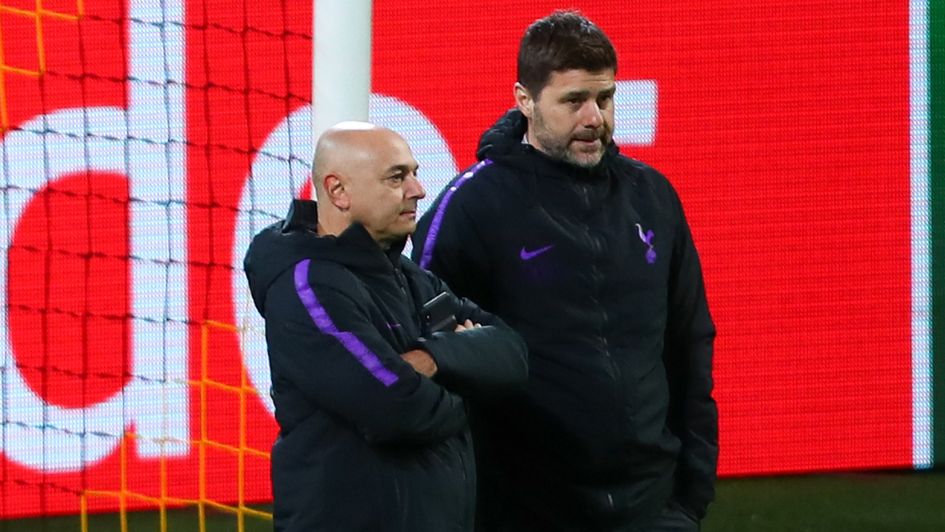
Let's begin by providing a little context. Daniel Levy is a chairman known for his ability to drive a hard bargain.
That reputation was earned during Harry Redknapp's stint as Spurs manager, when the club became renowned for cut-price deadline-day signings such as the £8m arrival of Rafael van der Vaart from Real Madrid in 2010, just 24 hours after his £18m move to Bayern Munich had collapsed.
Ruthless.
Two years earlier, Tottenham completed a £16.5m deal for Luka Modric which turned out to be incredible value. When Dinamo Zagreb asked for five shirts with the Croat's name on the back as a parting gift, Levy obliged by deducting the cost of those shirts from the transfer fee.
Ruthless again.
He has long been heralded as an example for football in its quest to achieve sustainability, praised for his dual target of making Tottenham a Premier League force while also running a profit.
Levy can stomach the backlash that follows making tough decisions if he believes they are necessary.
That is no better exemplified than by Spurs becoming the first team in Premier League history to go throughout a summer transfer window without signing a single player. They then backed that up by signing no one in January 2019 either.
Before 2019 was out, a very popular manager who had led them to a first ever Champions League final a few months earlier had been sacked too.
Whatever your view of the late stages of Mauricio Pochettino's reign, his departure was ruthless: Jose Mourinho replaced him within a matter of hours.
What clinched Pochettino's exit? Spurs looked like they were slipping well off the race for Champions League qualification, a financial necessity. Historically, Mourinho gets results however he needs to.
Ruthless yet again.
To Daniel Levy, every penny counts. Taking 20% of the wages away from staff that includes the lowest earners in your business is hard-nosed, but Levy is nothing if not hard-nosed.
What did he say exactly?
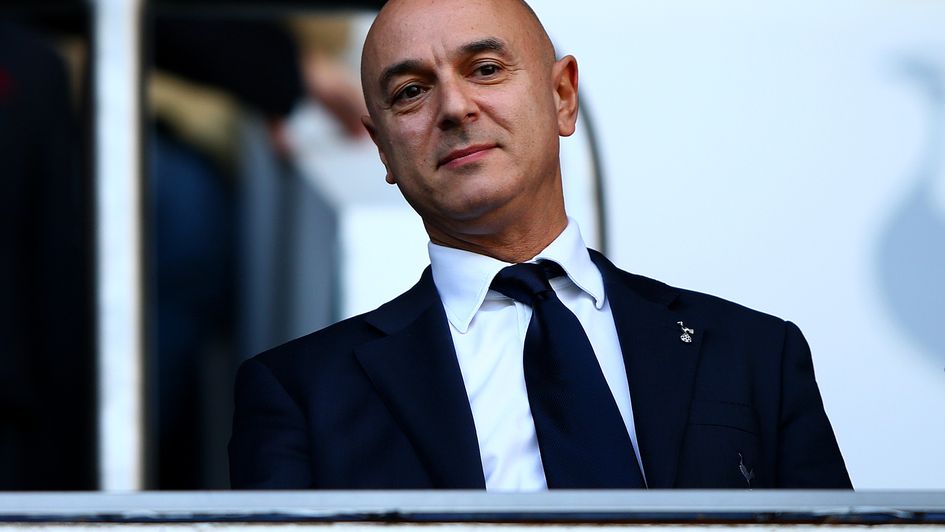
Here is how Daniel Levy began his statement on the Tottenham website:
"As recently as 18 March I said: 'We shall all need to work together to ensure the impact of this crisis does not undermine the future stability of the club.
In Levy's defence, the "work together" element does include him. His £3m bonus has been deferred, and as one of the 550 non-playing staff he will be taking a 20% wage cut during April and March, reducing his monthly income from £333,000 to £267,000.
Over the next two months he will still be paid £534,000. Being in this together doesn't quite cut it.
While I take issue with that, the rest of the statement makes a lot of sense.
He details the cost-cutting measures Spurs have put in place so far, the uncertainty over future income, the club's "annual cost base running into the hundreds of millions" and the knock-on effect the club is likely to feel from supporters and sponsors being hit financially by the Covid-19 pandemic.
Yes, Tottenham now generate a huge turnover but that is on the basis of the world we knew before coronavirus. The club's new stadium is fantastic not just for watching football, but for a multitude of sports thanks to its adaptable features.
Then there is all of the non-sporting events such as concerts, and the day-to-day use of the facility as a multipurpose conferencing venue. All of that is now at risk.
The bigger you are the harder you fall, as the saying goes.
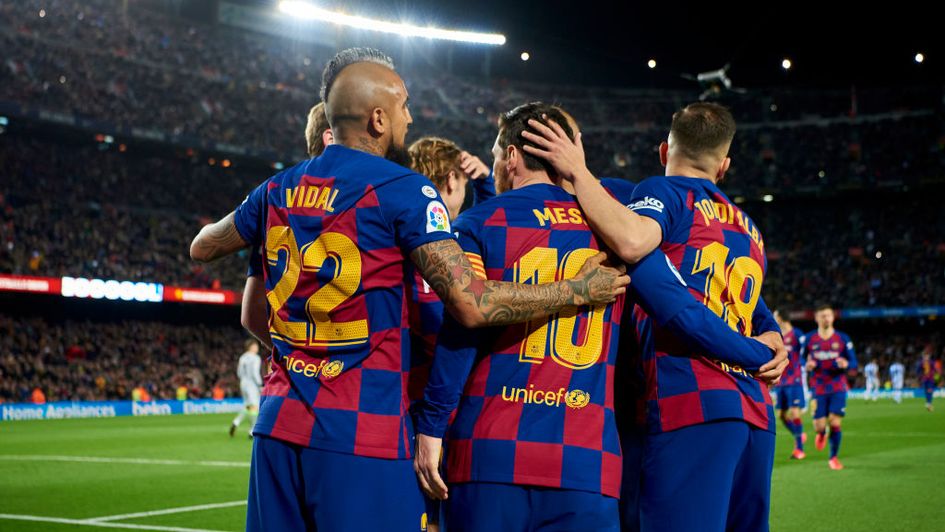
"When I read or hear stories about player transfers this summer like nothing has happened, people need to wake up to the enormity of what is happening around us. With over 786,000 infected, nearly 38,000 deaths and large segments of the world in lockdown we need to realise that football cannot operate in a bubble."
Who are the "people" he is talking about here? In my mind he is talking about players, managers, their agents and their unions.
"We have seen some of the biggest clubs in the world such as Barcelona, Bayern Munich and Juventus take steps to reduce their costs... We hope the current discussions between the Premier League, PFA and LMA will result in players and coaches doing their bit for the football eco system."
Let's get to that bit then.
Why haven't the players taken a pay cut?
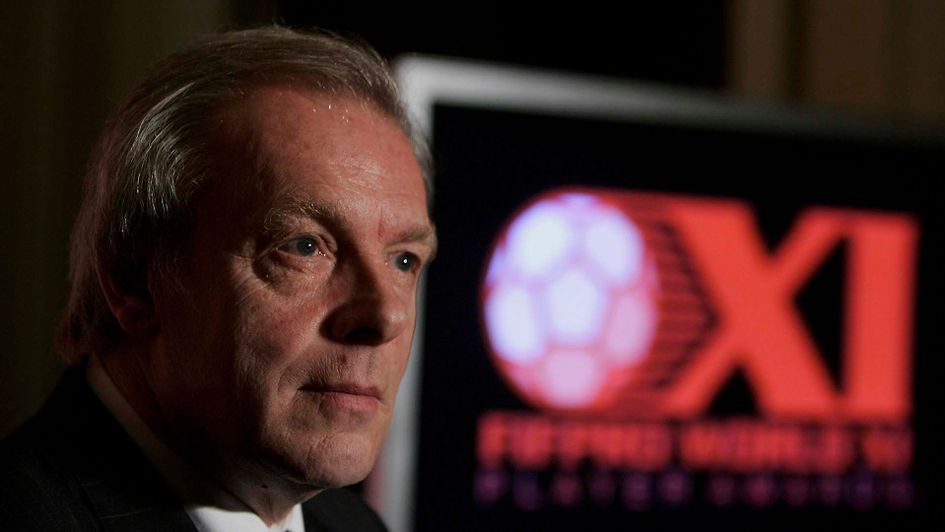
Premier League footballers are being criticised for not taking pay cuts, which is the right of anyone dishing out the criticism. It's a free country.
But Daniel Levy has been strongly criticised for not cutting players' wages, while using the government's furlough scheme and initiating pay cuts to non-playing staff.
That, is both unfair and simplistic.
The reason Levy mentions "Barcelona, Bayern Munich and Juventus" is because the players at those clubs have taken drastic measures to help their lower paid, non-playing colleagues.
Barca players have taken a staggering 70% drop in wages, Juventus players and first-team staff have delayed wages for four months and Bayern Munich's squad have cut their pay by 20%.
What about Premier League clubs? So far, nothing. But that is not completely their fault.
Just 24 hours prior to Levy's statement about the action Tottenham had taken, Gordon Taylor, chief executive of the Professional Footballers' Association, said he would not be supporting plans for a wage cut at the Friday meeting that the Spurs chairman makes reference to.
The PFA wouldn't sanction Championship sides Leeds United and Birmingham City's wage-cutting measures but the clubs decided to go ahead anyway.
Why are clubs so scared? Here's why - they're right to be.
Any player under contract who has a wage cut imposed on him or her without consent, then has the right to cancel their contract.
So if Daniel Levy had enacted the 20% on players as well, Harry Kane could join Manchester United on a free transfer along with every other contracted Spurs player.
That could potentially lead to far greater financial ruin, eliminating any chance of saving the jobs of the 550 employees now earning 20% less than they were before.
Why not wait until after Friday?
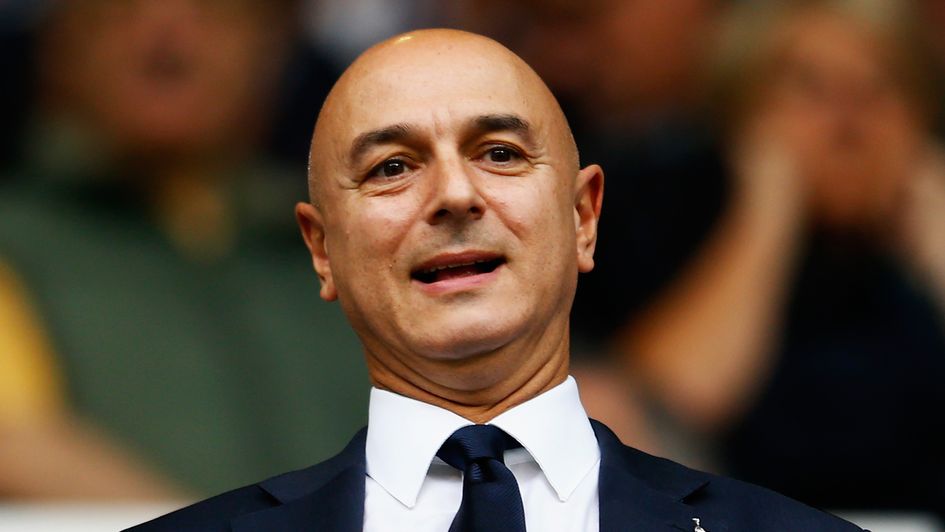
Daniel Levy's statement really was that - he was making a statement.
His point, like it or not, is that football as we knew it is over. The situation hasn't emerged fully, but it will, and the sport has to get ready for it.
Gordon Taylor's outspoken, brazen attitude about being against footballers taking a pay cut, I believe, was the clincher for Levy to bite the bullet and reveal the action he had already taken, in the hope it could be used in the negotiations.
How can millionaire Premier League footballers not agree to a major reduction in wages when the office staff, cleaners and caterers at their training ground already have?
I do not think for one minute that footballers would baulk at the idea, no way. But Premier League wages at the top end have reached such an inflated level that if what Levy envisages in terms of reduced turnover does play out, the necessary cut will be huge.
Again using Harry Kane as an example, if he takes a 20% reduction then Spurs are paying him £1m a month instead of £1.25m.
There's a good chance that will be nowhere near enough to ensure the club's survival.
If, and it's a big if, Levy really was doing what he could to send out a message of what needs to be done he made one crucial error.
He'll still be getting paid more than £250,000 per month while Tottenham "work together to ensure the impact of this crisis does not undermine the future stability of the club."
Daniel Levy is not one of the staff, he's one of the footballers.
Follow Sporting Life on social - find us on Facebook here or tweet @SportingLifeFC
Related football content
- The Verdict: Should Kane leave Spurs?
- Predicting the Premier League table
- How Klopp got to the top
- Kuntz remembers Euro 96
- Analysis: Salah's scoring exploits
- Jack's the lad for United
- The Championship's Team of the Season (so far)
- Message from the editor
- Laura Woods: Unprecedented times
- Who is the PL's best goalkeeper?
- Sky Bet EFL: Great Games
- The best sporting documentaries
- Paper Talk - latest transfer gossip









